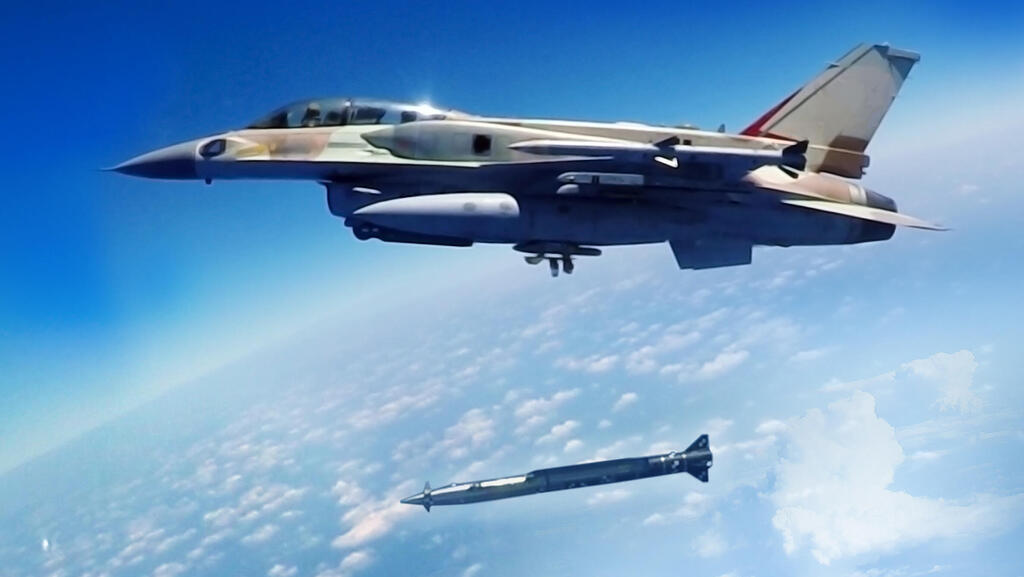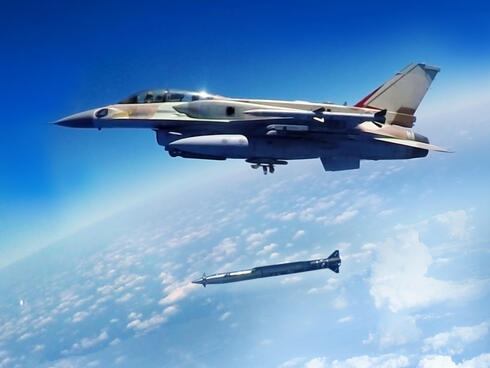
Elbit Systems’ Israeli sales surge amid multi-front war
Defense giant doubles local market sales, accelerates production, and eyes record-breaking order backlog. Elbit CEO criticizes French defense policy, calling restrictions “brutal and hypocritical.”
The war in Gaza and Lebanon, ongoing for over 13 months, continues to position Israel as one of Elbit Systems’ most active markets. Approximately $500 million, representing a third of Elbit’s sales in the third quarter, were directed to the Ministry of Defense. In the first nine months of the year, sales to the ministry totaled about $1.4 billion.
Most of Elbit’s local sales involve munitions produced by its land division for use by the IDF in combat. In the third quarter, sales in this division surged 24% compared to the same period last year, reaching approximately $422 million.
Elbit also reported a 7% increase in sales of unmanned aerial vehicles (UAVs), driven by the IDF’s extensive procurement of weapons systems amid multi-front conflicts. Sales to the Israeli market doubled in the third quarter compared to the corresponding period last year, supported by accelerated production at its plants across the country, particularly its facilities in Ramat Hasharon.
Elbit also began initial operations at its new industrial complex in Ramat Beka, which is expected to scale up in the fourth quarter and reach full production capacity by the end of 2025. Additionally, by month’s end, Elbit plans to open a new factory in Modiin to expand drone production, focusing on its Hermes-450 and Hermes-900 UAVs.
Related articles:
“In the past year, we have increased production output tenfold on some of our lines,” said Elbit CEO Bezhalel Machlis, in light of the company’s positive third-quarter results. Elbit posted a 14% year-on-year revenue increase, reaching $1.71 billion, surpassing forecasts of $1.6 billion.
Since the second quarter, Elbit has grown its order backlog by $1 billion, bringing it to a record $22.1 billion. Of this, 37% is expected to be fulfilled by the end of next year, with 66% of the backlog comprising international orders.
Expansion beyond Israel
While Israel leads Elbit’s sales for the first nine months of the year, its second-largest market is continental Europe. During this period, Europe accounted for 22% of Elbit’s sales, totaling $1.08 billion.
On Monday, Elbit announced a $355 million deal with a European country to supply Hermes-900 UAVs and PULS precision rocket launchers over the next three years. This deal will be reflected in Elbit’s next quarterly reports. It follows a series of significant transactions, including a $200 million order for components for a high-power laser-based defense system for the Ministry of Defense.
“Beyond significant growth in the Israeli market, Elbit is experiencing balanced growth across all segments and regions for the third consecutive quarter,” said Machlis. He reiterated that the company is on track to exceed its 2026 targets of $7 billion in annual sales and an operating profit margin of 10%. In the third quarter, Elbit’s operating profit margin stood at 8.2%, with total sales for the first nine months reaching $5 billion. By comparison, Elbit closed 2023 with $6 billion in sales.
Facing international challenges
Despite its growth, Elbit, like other Israeli defense companies, faces increasing international challenges due to negative sentiment toward Israel, particularly in Europe. Recently, Israeli defense firms, including Elbit, were barred from participating in the Euronaval naval weapons exhibition in Paris. This move, attributed to French government pressure on Israel to halt the war in Gaza and Lebanon, has raised concerns about further restrictions.
Elbit executives fear similar exclusion from the prestigious Paris Air Show, the world’s leading arms exhibition, scheduled for June 2025.
Speaking with Calcalist, Machlis sharply criticized France’s actions, labeling them “brutal, unjustified, and hypocritical.” He added, “The French are major competitors of Israeli industries. By preventing us from attending these exhibitions, they are seemingly trying to strengthen their own position. Smart observers will see this behavior as unbalanced and self-defeating in the long term.”
While France is not a significant market for Elbit, Machlis acknowledged the challenges posed by such restrictions. “We sell very little to France and do not source from them either, but these exhibitions are vital for connecting with customers and suppliers. What doesn’t happen there happens elsewhere. Ultimately, these moves will backfire on them,” he concluded.
